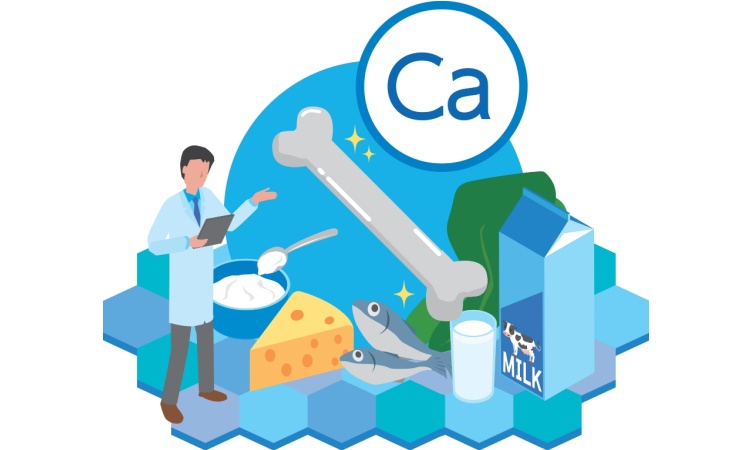Calcium Deficiency Symptoms You Must Know
Calcium Deficiency Symptoms You Must Know

You know that calcium is necessary for your overall bone development. However, even your blood requires this mineral to perform important tasks, such as muscle movement, nerve function, blood clotting, and the healthy functioning of the heart.
When the calcium levels in your blood go down, you are diagnosed with a condition called hypocalcaemia. Usually, imbalances in the parathyroid hormone can lead to calcium deficiency.
Calcium Deficiency and Symptoms
A calcium deficiency in your blood can be treated quickly, provided it is diagnosed on time. It can be a short-term or temporary issue (side effect of certain health issues) or a chronic condition. Regardless of the cause and longevity of this problem, you may not be able to spot its symptoms if the ailment is in the early stages. As the condition progresses, you can notice these signs of hypocalcaemia in your body:
• Cramps (usually back and leg muscles)
• Scaly and dry patches on the skin
• Brittle and weak nails
• Hair texture becoming very coarse
• Alopecia
• Eczema
• Psoriasis
It is better to treat hypocalcaemia in this stage, because if not treated on time, this condition can lead to severe symptoms that impact the functioning of your nervous system and your mind. These symptoms include:
• Illogical thinking
• Confused state
• Memory loss
• Depression
• Irritability
• Hallucinations
When you have dangerously low levels of calcium in your blood, you are diagnosed with severe hypocalcaemia. The symptoms seen in this stage are:
• Tingling sensation in the hands, legs and mouth
• Pain and discomfort while walking
• Laryngospasm (throat spasms impacting breathing)
• Muscle spasms and stiffening
• Seizures
• Arrhythmia (irregular rhythm of the heart)
• Heart failure
The usual triggers of hypocalcaemia are improper functioning of the parathyroid hormones and fluctuations in your body’s Vitamin D levels. In a few cases, this condition can also be due to genetic disorders, kidney failure, pancreatitis and more.
Conclusion
Watch out for the symptoms and seek medical help as soon as you notice them. While the condition is treatable, it can lead to severe health complications if left undiagnosed for a long time. Use your health insurance policy to cover your medical costs for diagnostic and other procedures.
Disclaimer: The above information is for illustrative purposes only. For more details, please refer to the policy wordings and prospectus before concluding the sales.
RELATED ARTICLES
What Are the Common Nutritional Problems in India?
Can Healthy Diets Damage Your Health?
Why you should include protein in your diet?
World Milk Day: Health Benefits of Drinking Milk Everyday
Why Body Need Calcium for Bone and Heart Health










 Health Insurance
Health Insurance  Travel Insurance
Travel Insurance  Car Insurance
Car Insurance  Cyber Insurance
Cyber Insurance  Critical Illness Insurance
Critical Illness Insurance
 Pet Insurance
Pet Insurance
 Bike/Two Wheeler Insurance
Bike/Two Wheeler Insurance  Home Insurance
Home Insurance  Third Party Vehicle Ins.
Third Party Vehicle Ins.  Tractor Insurance
Tractor Insurance  Goods Carrying Vehicle Ins.
Goods Carrying Vehicle Ins.  Passenger Carrying Vehicle Ins.
Passenger Carrying Vehicle Ins.  Compulsory Personal Accident Insurance
Compulsory Personal Accident Insurance  Travel Insurance
Travel Insurance  Rural
Rural 











